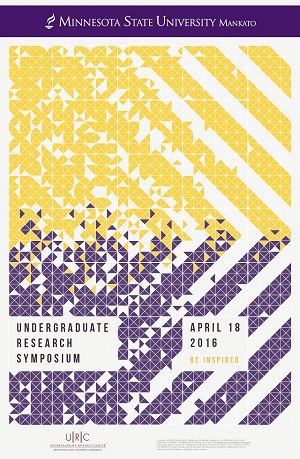The Lived Experience of Nursing Students during an Evaluative Simulation
Location
CSU Ballroom
Start Date
18-4-2016 2:00 PM
End Date
18-4-2016 3:30 PM
Student's Major
School of Nursing
Student's College
Allied Health and Nursing
Mentor's Name
Colleen Royle
Mentor's Department
School of Nursing
Mentor's College
Allied Health and Nursing
Description
Theorist van Manen uses two types of meaning, cognitive and non-cognitive, to illuminate meanings behind a phenomenon. The four fundamental existentials are spatiality, corporeality, temporality, and relationality is seen to belong to the student think-out-loud, stories, and shared experiences. The aim of this study was to transform personal experiences into disciplinary understanding. This single group qualitative phenomenological design as proposed by van Manen was used to inform the data analysis process. Rigor was enhanced by sensitivity, researcher's ability to identify subtle nuances and cues in the data text that led to meaning. Extended immersion, bracketing, use of triangulation, and an extensive audit trail were also used. Findings revealed that the nursing student’s way of being in the world was shaped by the meanings of the evaluative simulation experience. Nursing student understandings were influenced by their meaning of family nursing in the context of speaking the unspeakable. A framework of the four existentials guided the co-construction of meanings that guides the development of the study and enables the researcher to link the findings to nursing’s body of knowledge. Faculty caring, based on the understanding of the student experience, is enhanced through the presence of a nursing faculty who acknowledges the significance of the student relationship, experience and understandings with family nursing in the context of crisis. This understanding supports faculty level approaches that decrease the student’s suffering and struggle and act on a commitment to be with and for the student during this experience.
The Lived Experience of Nursing Students during an Evaluative Simulation
CSU Ballroom
Theorist van Manen uses two types of meaning, cognitive and non-cognitive, to illuminate meanings behind a phenomenon. The four fundamental existentials are spatiality, corporeality, temporality, and relationality is seen to belong to the student think-out-loud, stories, and shared experiences. The aim of this study was to transform personal experiences into disciplinary understanding. This single group qualitative phenomenological design as proposed by van Manen was used to inform the data analysis process. Rigor was enhanced by sensitivity, researcher's ability to identify subtle nuances and cues in the data text that led to meaning. Extended immersion, bracketing, use of triangulation, and an extensive audit trail were also used. Findings revealed that the nursing student’s way of being in the world was shaped by the meanings of the evaluative simulation experience. Nursing student understandings were influenced by their meaning of family nursing in the context of speaking the unspeakable. A framework of the four existentials guided the co-construction of meanings that guides the development of the study and enables the researcher to link the findings to nursing’s body of knowledge. Faculty caring, based on the understanding of the student experience, is enhanced through the presence of a nursing faculty who acknowledges the significance of the student relationship, experience and understandings with family nursing in the context of crisis. This understanding supports faculty level approaches that decrease the student’s suffering and struggle and act on a commitment to be with and for the student during this experience.
Recommended Citation
Patterson, Kayla. "The Lived Experience of Nursing Students during an Evaluative Simulation." Undergraduate Research Symposium, Mankato, MN, April 18, 2016.
https://cornerstone.lib.mnsu.edu/urs/2016/poster-session-B/21




